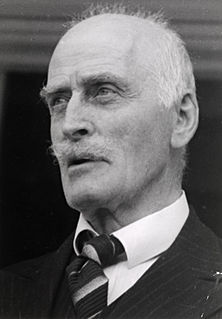A Quote by Charles Hodge
Faith is not a blind, irrational conviction. In order to believe, we must know what we believe, and the grounds on which our faith rests.
Related Quotes
But you must still know to respect other people's faith.'
'Why? We don't respect any other delusion. We lock up people who believe they're Christ, yet we're supposed to humour those who believe in him.'
'By definition, faith is irrational: a belief you hold against the normal rules of evidence.'
'In which case I believe in Jedi
Yet, after all, faith is not our righteousness. It is accounted to us in order to righteousness (Rom 4:5, GREEK), but not as righteousness; for in that case it would be a work like any other doing of man, and as such would be incompatible with the righteousness of the Son of God; the righteousness which is by faith. Faith connects us with the righteousness, and is therefore totally distinct from it. To confound the one with the other is to subvert the whole gospel of the grace of God. Our act of faith must ever be a separate thing from that which we believe.
I believe that if the silent majority were to protest against those who believe in irrational blind faith - who want to go backwards instead of forward, who are for tradition not innovation, who oppose individualism and plurality of thought - then the world would become a truly civilized world in which to live.
Where we get into problems, typically, is when our personal religious faith, or the community of faith that we participate in, tips into a sort of fundamentalist extremism, in which it's not enough for us to believe what we believe, but we start feeling obligated to, you know, hit you over the head because you don't believe the same thing. Or to treat you as somebody who's less than I am.
We too often forget that faith is a matter of questioning and struggle before it becomes one of certitude and peace. You have to doubt and reject everything else in order to believe firmly in Christ, and after you have begun to believe, your faith itself must be tested and purified. Christianity is not merely a set of forgone conclusions. Faith tends to be defeated by the burning presence of God in mystery, and seeks refuge from him, flying to comfortable social forms and safe convictions in which purification is no longer an inner battle but a matter of outward gesture.
Faith, to be faith, must center around something that is not known. Faith, to be faith, must go beyond that for which there is confirming evidence. Faith, to be faith, must go into the unknown. Faith, to be faith, must walk to the edge of the light, and then a few steps into the darkness. If everything has to be known, if everything has to be explained, if everything has to be certified, then there is no need for faith. Indeed, there is no room for it.
I believe that in order for our democratic system to work as intended, the average person must have faith in their government. Citizens must believe that our system is working to represent them, and that it is capable of advancing issues like healthcare access, lowering prescription drug costs and improving infrastructure.
If I did not believe, if I did not make what is called an act of faith (and each act of faith increases our faith, and our capacity for faith), if I did not have faith that the works of mercy do lighten the sum total of suffering in the world, so that those who are suffering on both sides of this ghastly struggle somehow mysteriously find their pain lifted and some balm of consolation poured on their wounds, if I did not believe these things, the problem of evil would indeed be overwhelming.






































